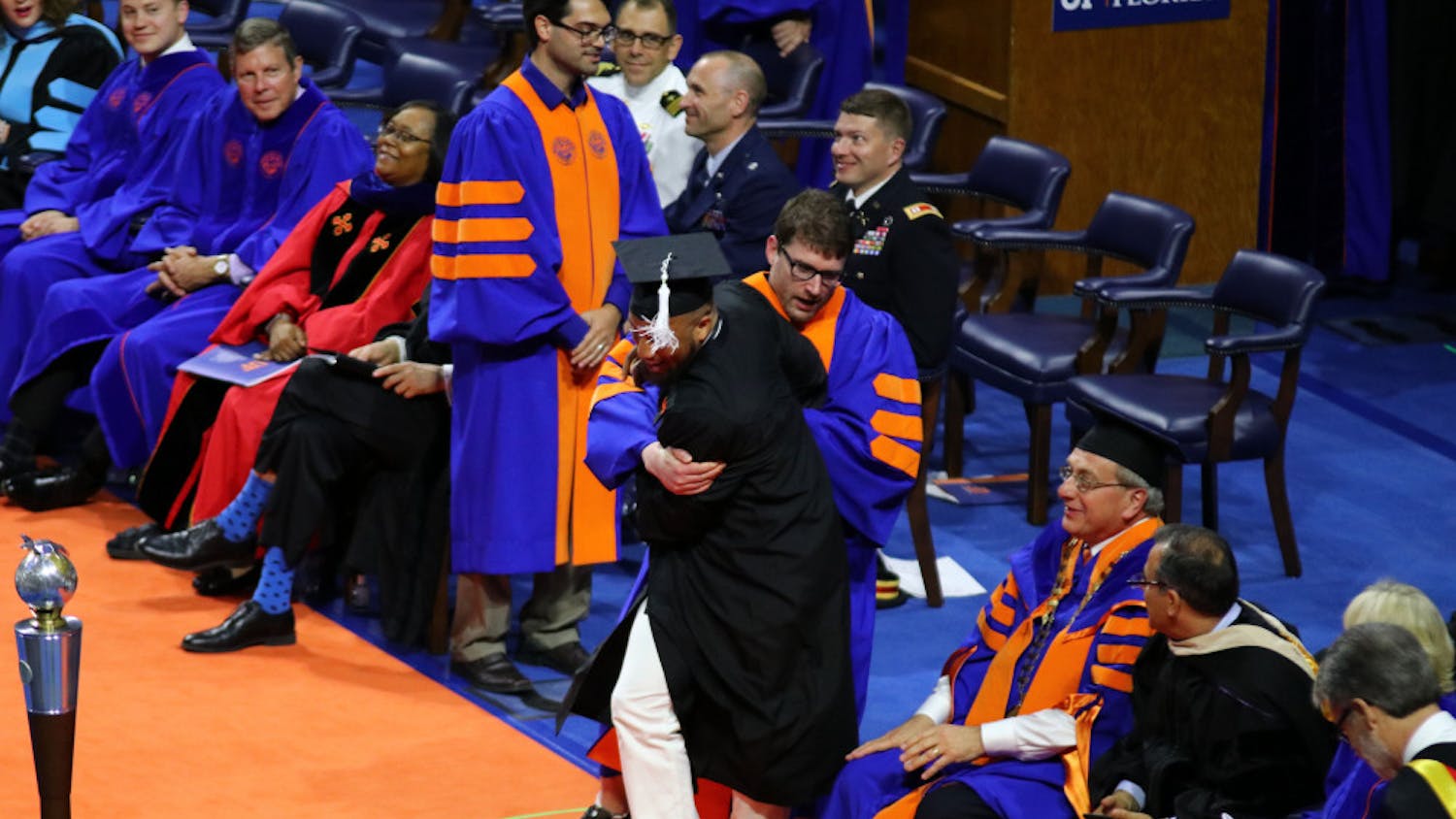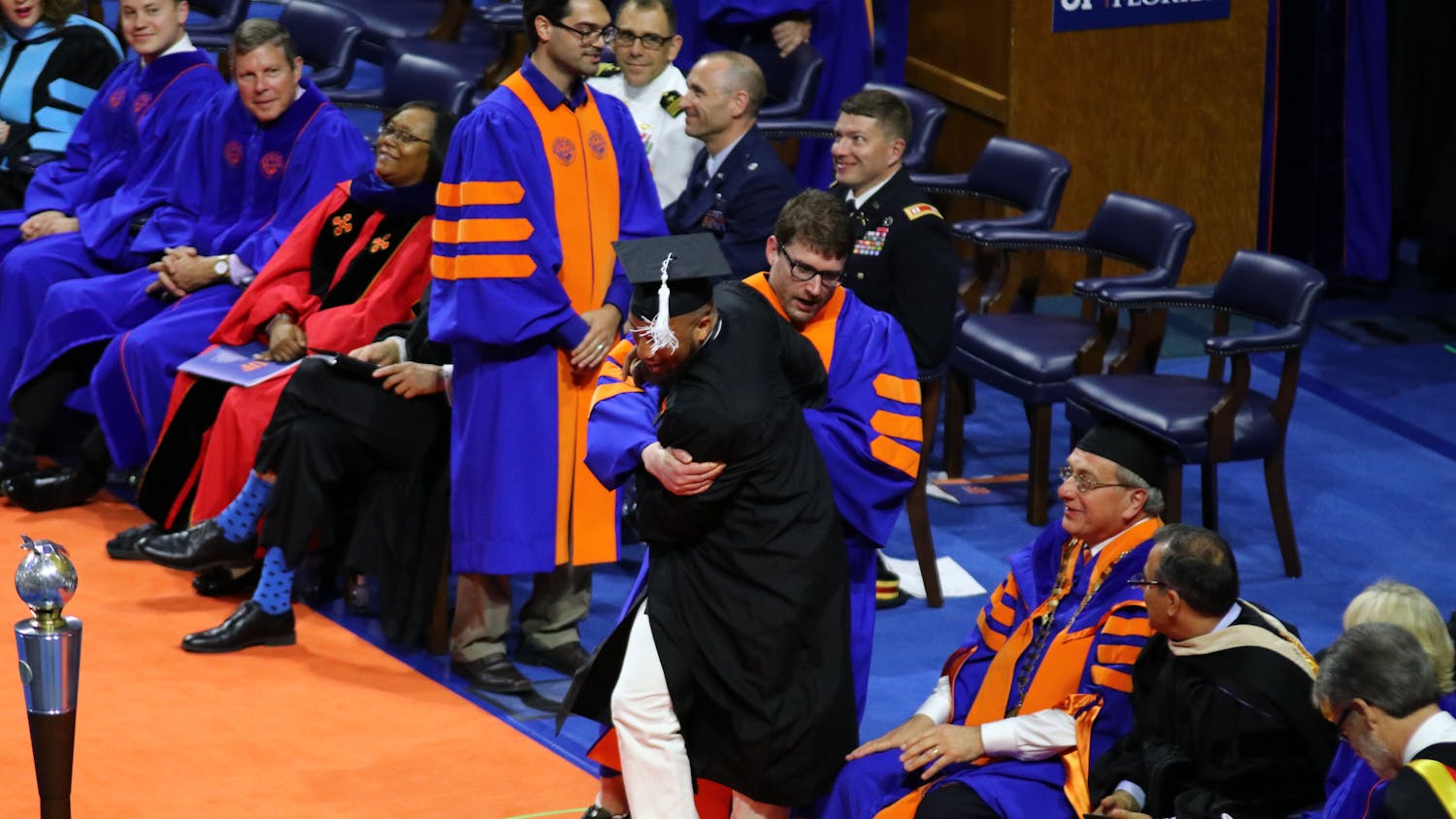Parents will do whatever it takes to ensure their child makes the team.
This includes seeking the sperm of college athletes to genetically engineer their very own little champion.
ESPN correspondent and UF graduate Tom Farrey described this desire to capture the traits of athletic potential in a speech to about 100 UF students and alumni Friday afternoon at the Reitz Union.
It's not just the $1 million paycheck that leads parents to push their children to become the next Michael Jordan. Athletes tend to get better grades at school and seek higher education, Farrey said.
Farrey has three little champions of his own, so his observations stem from investigative journalism and firsthand experience, like when he sits on the bleachers to watch his daughter Anna play lacrosse.
"My goal with my kids is not to get them a college scholarship," he said. "My goal is to have them fall in love with sports."
But youth sports today are in a completely different ballpark than they were when Farrey grew up.
"[It] is incredibly organized and incredibly intense," Farrey said. "It's just changed dramatically."
Today, making the team has another important connotation. In what Farrey described as an obesity crisis, he dubbed youth sports as a form of preventative medicine.
Farrey said the number of overweight children has tripled since 1990.
"Giving kids fitness patterns for life is a way to reduce the public burden of health care costs later on," Farrey said.
This is not the only aspect of youth sports that can be interpreted as an investment. Financial elitism has crept into the sports arena, and Farrey said the children who sometimes excel the most on the field are the same children whose parents can afford the $300 baseball bat.
Farrey has a game plan, and it's about making sports accessible to the public again.
"There needs to be a recommitment," Farrey said. "Sports for all. Play for life."





